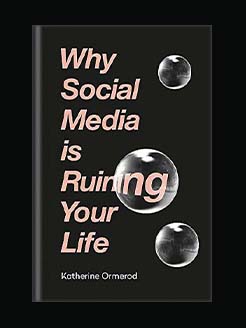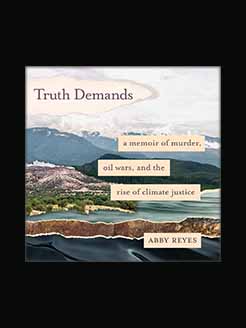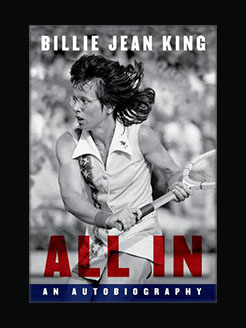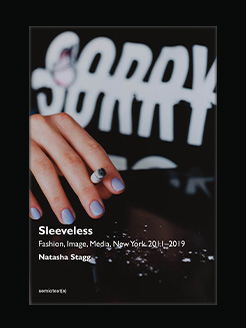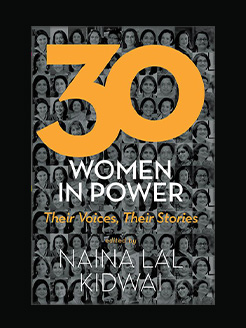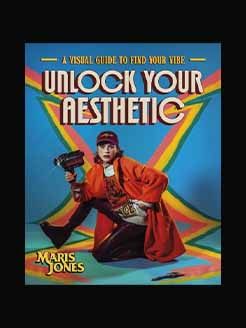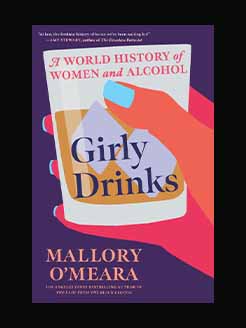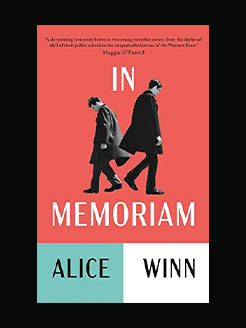Published in 2016
272 pages
Nikesh Shukla is an award-winning, best-selling writer of books and television. He edited The Good Immigrant which is a collection of 21 essays by female and male writers. TIME Magazine recently named Shukla one of the twelve leaders shaping the next generation of artists. He was also included in Foreign Policy magazine’s 100 Global Thinkers and The Bookseller’s 100 most influential people in publishing in 2016 and 2017.
Shukla’s mission is simple in a world of racial complexity: to give a literary platform to brown and black voices and stories beyond the scope of race or immigration. He has been credited with changing the hue of British publishing over the last several years through his publications, articles, speeches and establishing The Good Journal and The Good Literary Agency. “Not all writers of color want to write about race. They want to write sci-fi or creative nonfiction about beekeeping.”
He is walking in the tradition of revolutionaries. Shukla’s uncle made history as the first person in the U.K. to bring a racial discrimination case after being rejected while attempting to purchase a home. Picking up the mantle, Shukla made history crowdfunding the essay collection, The Good Immigrant in no less than 72 hours before a word of the book was ever written. At the time, 2015, there were very few writers of color being published in Britain, under a misguided belief that there wasn’t interest in their work. Post-Brexit, The Good Immigrant’s 21 essays by diverse writers demonstrated a proof concept, a fertile market and spawned the creation of the Good Immigrant USA and the development of a television show.
Chimene Suleyman is a writer from London who is now based in New York. As well as contributing to The Good Immigrant as co-editor, she has written on race-politics for The Independent, International Business Times, The Debrief, The Pool, and Media Diversified. TV and radio appearances include BBC Newsnight, BBC, and LBC. Her poetry collection, Outside Looking On, was included in the Guardian’s Best Books of 2014 list.
What is this book about?
Nikesh is the editor of this essay collection, in which 21 British writers of colour discuss race and immigration in the UK. The Good Immigrant won the reader’s choice at the Books Are My Bag Awards and is shortlisted for Book of the Year at the British Book Awards.
So, how does it feel to be constantly regarded as a potential threat, strip-searched at every airport? Or be told that, as an actress, the part you’re most fitted to play is ‘wife of a terrorist’? How does it feel to have words from your native language misused, misappropriated and used aggressively towards you? How does it feel to hear a child of colour say in a classroom that stories can only be about white people? How does it feel to go ‘home’ to India when your home is really London? What is it like to feel you always have to be an ambassador for your race? How does it feel to always tick ‘Other’?
Bringing together 21 exciting black, Asian and minority ethnic voices emerging in Britain today, The Good Immigrant explores why immigrants come to the UK, why they stay and what it means to be ‘other’ in a country that doesn’t seem to want you, doesn’t truly accept you – however many generations you’ve been here – but still needs you for its diversity monitoring forms.
Inspired by discussion around why society appears to deem people of colour as bad immigrants – job stealers, benefit scroungers, undeserving refugees – until, by winning Olympic races or baking good cakes, or being conscientious doctors, they cross over and become good immigrants, editor Nikesh Shukla has compiled a collection of essays that are poignant, challenging, angry, humorous, heartbreaking, polemic, weary and – most importantly – real.
Here is a great review by Nat from goodreads detailing specific quotes from specific essays and authors in this book:
Namaste by Nikesh Shukla:
Cultural misappropriation and language are important key ideas discussed in this introductory essay.
A comedian, Kumail Nanjiani, an avid gamer, once expressed his delight that the Call of Duty series finally set a level in Karachi, the city of his childhood, now one of the top ten most dangerous cities in the world. He was appalled, on playing the game, to see that all the street signs were in Arabic. Not Urdu. He talks about the effort put into making each follicle on each soldier’s head stand out, into making their boot laces bounce as they ran, the millions spent developing this game, and how at no point did anyone decide to Google the language of Pakistan.
A Guide to Being Black by Varaidzo:
An incredible discussion on being mixed-race.
The world saw blackness in me before it saw anything else and operated around me with blackness in mind.
There was a drama to blackness, a certain swagger and verve, an active way of experiencing and being experienced that mixedness could not accommodate, one that I was committed to embodying fully.
There was one thing I’d never considered about mixing red and yellow: a drop of yellow into red paint won’t do much to change the colour, but one drop of red into yellow and the whole pot is tainted for ever.
It’s a tree falling in a forest conundrum: if a white kid raps all the lyrics to ‘Gold Digger’ and there isn’t a black person around to hear it, is it still racist?
My Name Is My Name by Chimene Suleyman:
This whip-smart written piece left me speechless in the best possible way
It is there in the white men and women who do not understand, to the point of frustration, why we still walk with the noose of our ancestors around our necks, as we cannot comprehend how they do not carry the indignity of their ancestors tying it there.
Forming Blackness Through a Screen by Reni Eddo-Lodge:
To be an immigrant, good or bad, is about straddling two homes, whilst knowing you don’t really belong to either. It is about both consuming versions of blackness, digging around in history until you get confirmation that you were there, whilst creating your own for the present and the future. It is up to you to make your own version of blackness in any way you can – trying on all the different versions, altering them until they fit.
‘You Can’t Say That! Stories Have To Be About White People!’ by Darren Chetty:
This essay from a teacher’s point of view about educating the kids in his class on seeing themselves represented in books was beyond powerful.
If you are a teacher, try this with your class. Ask them to write down their favourite 25 children’s book characters. Then ask them to count how many of those characters are white (and look for other patterns too, such as gender and disability). If you’re not a teacher, ask any child you know. Or maybe ask the staff in a bookshop to show you the picture-books with a black boy, or a mixed-race girl or a Muslim child as the protagonist. I tried this once and received a lot of help in searching from a clearly panicked shopkeeper – but very few books.
And I love that the #WeNeedDiverseBooks campaign was brought up.
Airports and Auditions by Riz Ahmed:
Having Riz Ahmed featured in here was such a pleasant surprise, especially since I was already aquatinted with his incredible way with words.
As a minority, no sooner do you learn to polish and cherish one chip on your shoulder, it’s taken off you and swapped out for another. The jewellery of your struggles is forever on loan, like the Koh-i-Noor. You are intermittently handed this Necklace of labels to hang around your neck, neither of your choosing nor making, both constricting and decorative.
Part of the reason I became an actor was the promise that I might be able to help stretch these Necklaces, and that the teenage version of myself might breathe a little easier as a result. If the films I re-enacted as a kid could humanise mutants and aliens, maybe there was hope for us.
I feel this in my heart.
The Wife of a Terrorist by Miss L:
Miss L discusses the importance of seeing yourself reflected in media.
I mean, it’s supposedly fine to cast white actors in ethnic minority roles (Angelina Jolie, Emma Stone, Mickey Rooney, I could go on …) but the other way round? There’s more chance of seeing Benedict Cumberbatch in the dole queue.
This right here!!!
There are such connotations linked with being Middle Eastern that you generally can’t play a role unless it has something to do with your race. Sure, I can play a doctor or a lawyer or a street cleaner, but only if I’m being forced into an arranged marriage in the background or providing a cover-up for my terrorist husband. If there’s some really daring casting then I might get to play a character that defies my father’s wishes, if that happens then maybe I get to wear a nice dress and not wear a hijab. But very rarely do I get to play a role that isn’t defined by the preconceptions made about the colour of my skin.
What We Talk About When We Talk About Tokenism by Bim Adewunmi:
Bim Adewunmi suggests that a pre-requisite to a debate on representation is the need to expose the lie behind “universal” experience, to quote this article.
It appears clear to me that there is a gap in what people mean when they say things like ‘we’re all one race – the human race’ and how they actually see the world. The thing that means a person cannot imagine seeing a Asian man as a superhero (you know, that set of fictional beings with special powers) is pretty much the same thing that makes a person cringe away from feeling empathy for a fictional dying black girl (Rue, played by Amandla Stenberg in The Hunger Games). It leaks into the everyday, too – if you cannot bring yourself to imagine us as real, rounded individuals with feelings equal to your own on screen, how does that affect your ability to do so when you encounter us on the street, at your workplace, in your bed, in your life?
That last sentence speaks volumes!!!
This collection without a doubt articulated significant points that made me both see something I’d previously not noticed and emphasize things I’d felt but not said, to paraphrase Darren Chetty’s essay. However, since I got stuck about halfway through and didn’t get to read The Good Immigrant consecutively, it made my reading experience a bit less grabbing towards the end. All in all, though, this is a book set to linger with me long after I finish the last page. A truly revolutionary read.
